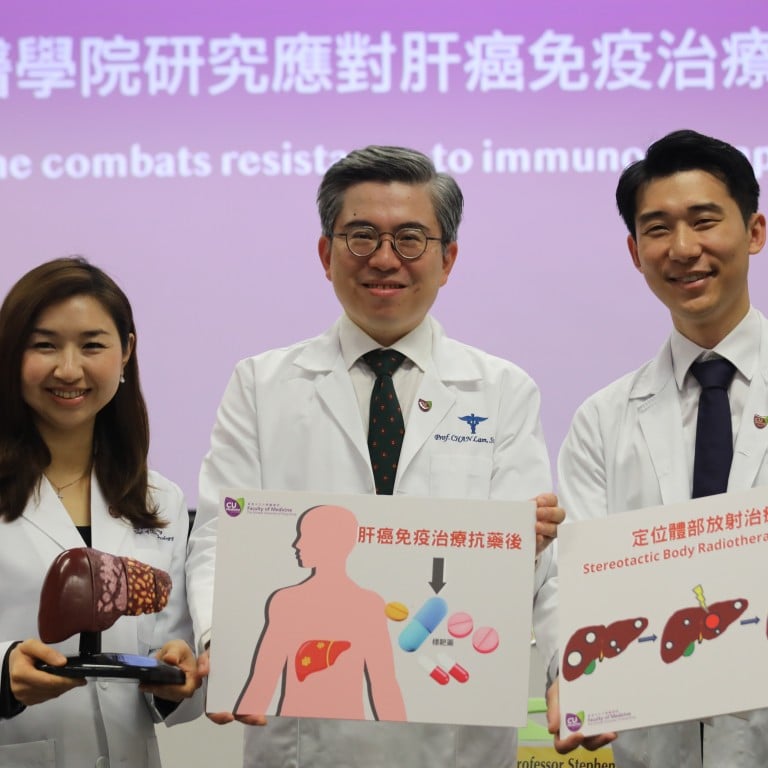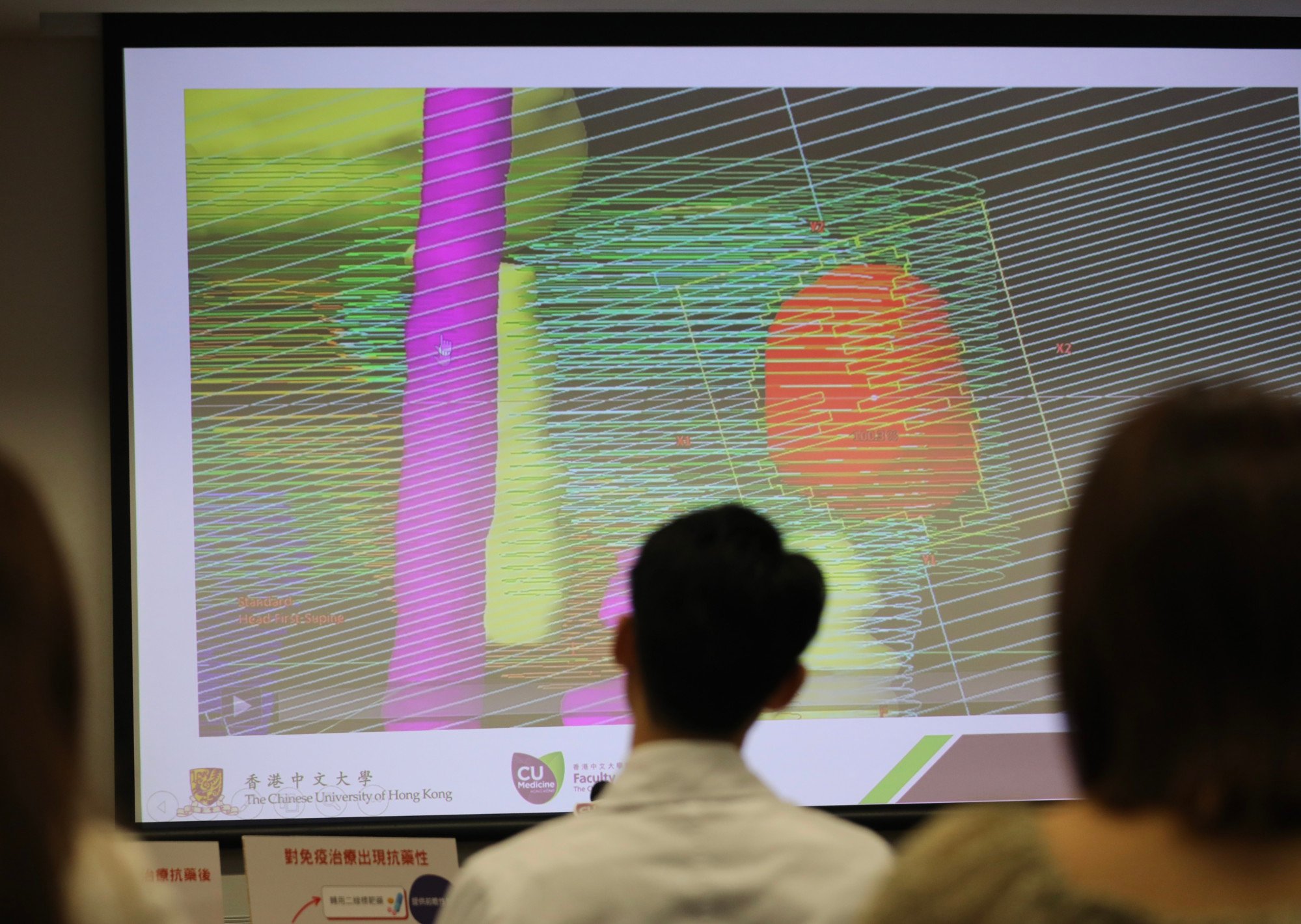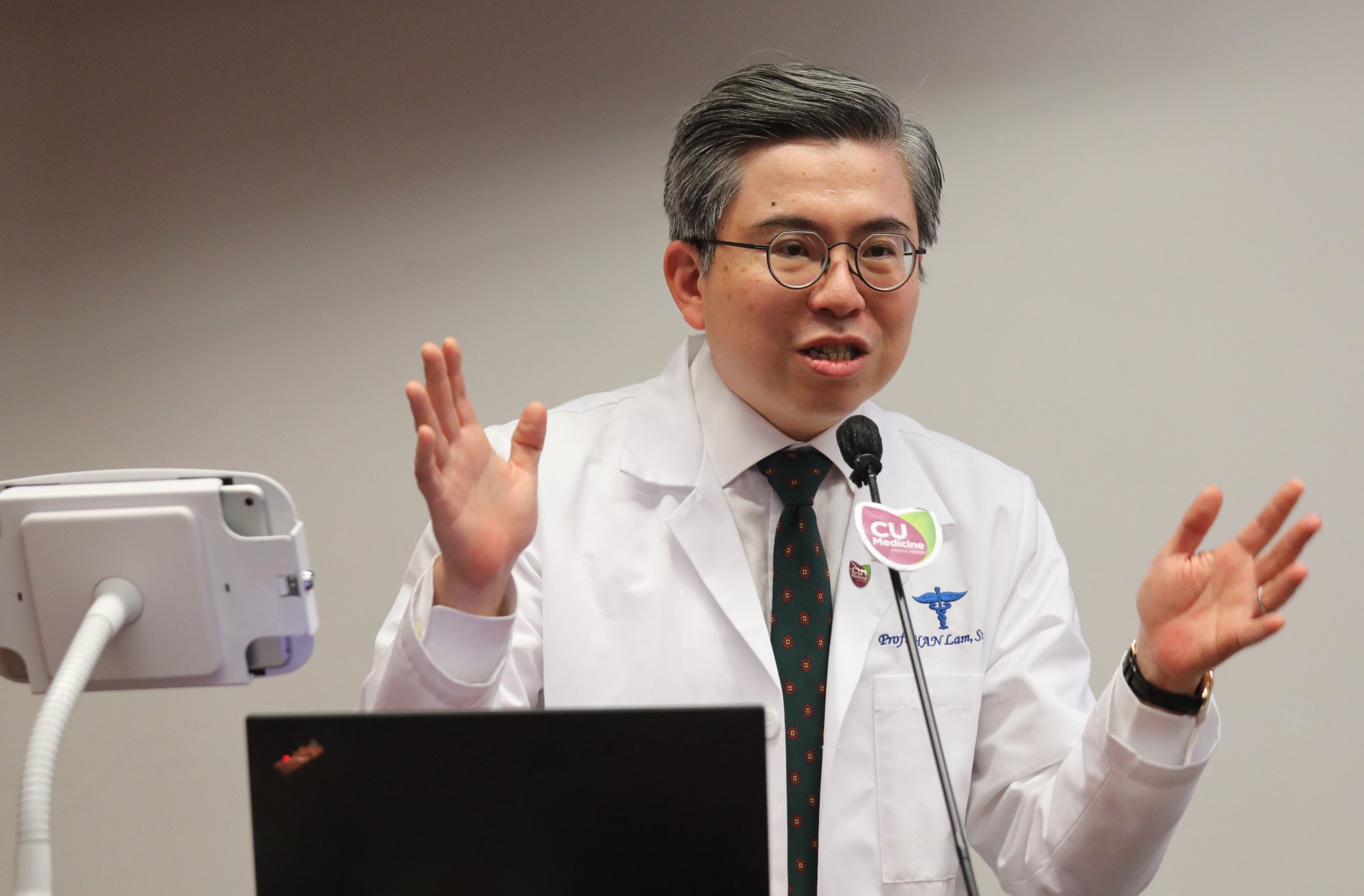
Targeted drug, radiotherapy could prolong lives of liver cancer patients with resistance to immunotherapy, Hong Kong studies find
- Chinese University researchers say patients in trial took oral targeted therapy once a day and underwent scans every six weeks
- After treatment, trial participants had median survival period of 14.3 months, while condition of 76.6 per cent of them became stable
A targeted drug and radiotherapy could extend the lives of liver cancer patients who developed resistance to immunotherapy, according to a pair of Hong Kong studies.
“Currently, there is no set course [for treatment] if immunotherapy becomes ineffective,” said Stephen Chan Lam, professor at the university’s clinical oncology department.
“Our data shows doctors in Hong Kong and all over the world that targeted therapy can be used if a patient develops resistance to immunotherapy.”

Forty-seven liver cancer patients were recruited between October 2020 and May 2022 for the study that looked into the use of targeted therapy and was conducted in collaboration with two research facilities in South Korea.
Before the trial, all participants from both jurisdictions underwent immunotherapy and developed resistance afterwards.
Patients in the trial had to take an oral targeted therapy, named cabozantinib, once a day and undergo scans every six weeks to monitor their condition. Cabozantinib is currently used to treat liver, kidney and thyroid cancers.
Following the treatment, patients had a median survival period of 14.3 months, while the condition of 76.6 per cent of them became stable. Another 6.4 per cent had their tumours slightly shrunk.
Chinese and Western medicine treat cancer and strokes in more Hong Kong hospitals
Chan said on Tuesday that based on past clinical trials and research data, patients who underwent no treatments after becoming resistant to immunotherapy could only survive for six to seven months.
“This comparison shows that our treatment can extend a patient’s life,” he said.
Chan also said that previously there was no data to support specific treatments if immunotherapy became ineffective for patients, adding doctors could only rely on their own experiences to try different approaches.
“With data [of similar studies] to be published by other research centres in the coming one to two years, I believe that international and Hong Kong guidelines can be changed,” he said.
Immunotherapy is currently used by doctors as the first-line of treatment for patients at advanced stages of liver cancer. But about 80 per cent of patients could develop resistance about six to seven months after starting the therapy.

Surgery is usually preferred for early-stage liver cancer patients, while those in the middle stage may opt for a minimally invasive procedure.
Hong Kong recorded 1,771 new liver cancer cases in 2021, the fifth most common type in the city. In the same year, 1,447 people died of the condition, making it the third-deadliest cancer.
A separate study carried out by Chinese University found that five of those who underwent a type of radiotherapy treatment following immunotherapy resistance had a median overall survival period of 24½ months without significant side effects. The trial retrospectively reviewed data from 105 liver cancer patients who received radiotherapy from 2016 to 2022.
Hong Kong study identifies certain bacteria as risk factor for stomach cancer
Dr Landon Chan Long, assistant professor at the university’s clinical oncology department, described the outcome that could give patients a longer survival period than previously reported data as “exciting”.
Both studies have been recently published in the Journal of Hepatology.
Professor Stephen Chan said the studies shed light on whether combined treatments could be used in future to improve outcomes.
“Could immunotherapy and targeted therapy be used together … or perhaps introduce radiotherapy earlier?” he said. “The principal is maximising the treatments while administering them safely.”

